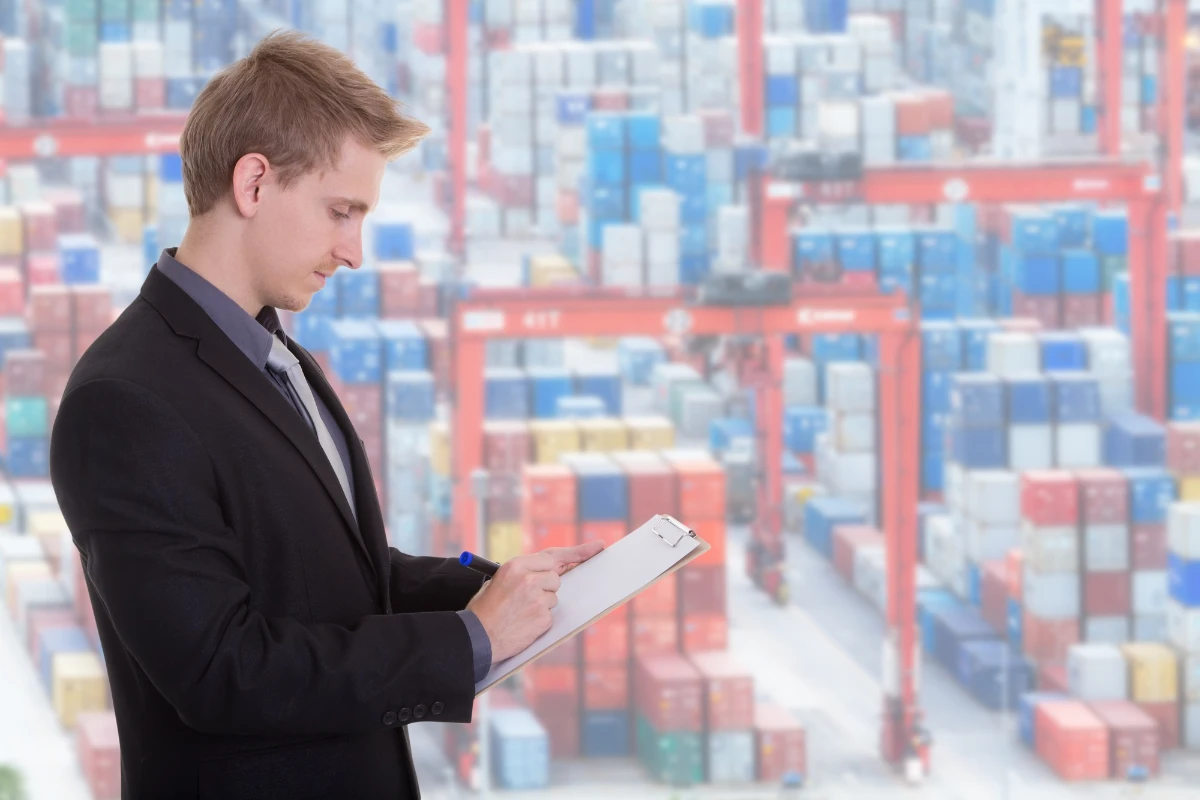
In the realm of international trade, navigating the complex landscape of customs regulations and documentation can be a formidable challenge. Whether you’re a seasoned importer/exporter or just starting your journey in global commerce, the expertise of a customs broker can be a game-changer. Here, we’ll delve into the vital role of a customs broker, shedding light on their responsibilities, benefits, and how partnering with one can significantly enhance your international trade operations.
What is Customs Brokerage?
Customs brokerage, in essence, is the art of facilitating the import and export of goods across national borders. It’s a multifaceted process encompassing the meticulous handling of documentation, adherence to ever-shifting customs regulations, and acting as a liaison between businesses and government authorities. The core purpose of customs brokerage, including expert guidance on how to import a car to Canada, is to ensure that all legal prerequisites are met—a task often underestimated in its complexity but essential for international trade to function seamlessly.
The Importance of a Customs Broker
The significance of a proficient customs broker cannot be overstated. An adept customs broker possesses a deep-rooted understanding of the intricacies of customs regulations and international trade dynamics. Their expertise goes beyond simply filing paperwork; it extends to providing invaluable guidance on tariff classifications, duties, taxes, and compliance with the latest regulations.
Understanding the Customs Broker’s Role
Navigating the Regulatory Maze
When it comes to importing or exporting goods across international borders, businesses encounter a myriad of regulations, tariffs, and customs procedures. These can vary significantly from one country to another, making compliance a daunting task. A customs broker serves as your guide through this regulatory maze, ensuring that your shipments adhere to all legal requirements.
Documentation Expertise
One of the most crucial aspects of international trade is accurate and comprehensive documentation. Customs authorities demand precise paperwork for customs clearance, and any errors or omissions can lead to costly delays or even confiscation of goods. Customs brokers possess in-depth knowledge of the required documents, including bills of lading, commercial invoices, and certificates of origin, guaranteeing a smooth customs clearance process.
Tariff Classification

Harmonized System (HS) Codes
Determining the correct tariff classification for your products is essential for calculating the applicable duties and taxes. Customs brokers are well-versed in the Harmonized System (HS) codes and can accurately classify your goods, ensuring that you pay the correct tariffs and avoid overpaying or facing penalties.
Importer of Record (IOR)
An often overlooked but crucial concept in customs brokerage is that of the Importer of Record (IOR). The IOR assumes legal responsibility for the imported goods, including their compliance with customs regulations. Selecting the right IOR is a decision that can significantly affect your business’s bottom line, as a responsible IOR ensures smooth customs clearance while minimizing risks.
Streamlining the Import Process
Importing goods into a country can be a complex and time-consuming process. Customs regulations, paperwork, and duties can vary significantly from one country to another. This is where a customs broker shines. They are well-versed in the intricacies of international trade laws and regulations, and they can help you navigate the maze of import requirements.
When you hire a customs broker, they will work closely with you to prepare and submit all the required documentation accurately and on time. This includes preparing invoices, bills of lading, and other essential paperwork. By doing so, they ensure that your goods clear customs smoothly, minimizing the risk of delays or fines.
Cost Savings and Duty Optimization
One of the primary reasons businesses opt for the services of a customs broker is the potential for cost savings. Customs brokers have an in-depth understanding of customs tariffs and duties. They can help you identify opportunities for duty reduction or exemption, ultimately saving your business money.
Furthermore, customs brokers can help you avoid costly mistakes. Incorrectly classifying your goods or providing incomplete documentation can lead to fines and penalties. With a customs broker’s expertise, you can rest assured that everything is in order, reducing the risk of costly errors.
Expertise in Compliance

Compliance with international trade regulations is crucial for businesses involved in cross-border trade. Customs agencies have strict rules and regulations in place to ensure the security and legality of imported goods. Failing to comply with these regulations can result in serious consequences for your business.
Customs brokers are well-versed in these regulations and stay up-to-date with any changes. They will help you maintain compliance with all relevant laws, including those related to product safety and security. This not only protects your business from potential legal issues but also builds a reputation for reliability and trustworthiness in the eyes of your clients.
Time Efficiency
In the world of business, time is money, and delays in customs clearance can be detrimental to your operations. Customs brokers are experts at expediting the customs clearance process. They have established relationships with customs officials and know how to navigate potential bottlenecks.
By hiring a customs broker, you can significantly reduce the time it takes for your goods to reach their destination. This speed and efficiency can give you a competitive edge in the market, as you can fulfill orders more quickly than your competitors who do not utilize the services of a customs broker.
Focus on Your Core Business
Managing international trade logistics can be a daunting task, and it can divert your attention away from your core business activities. When you partner with a customs broker, you can offload the complexities of customs clearance and compliance, allowing you to focus on what you do best, growing your business.
Having eyes for specific Import Documentation
Bill of Lading (B/L)
The Bill of Lading (B/L) serves as a cornerstone document in international trade. It comprehensively outlines the shipment’s origin, destination, contents, and the terms of transportation. Errors or discrepancies in the B/L can lead to costly shipment delays and complications, making precision and attention to detail paramount.
Commercial Invoice
A precise and meticulously prepared Commercial Invoice is essential for international trade transactions. This document provides a detailed breakdown of the transaction, including the goods’ value, quantity, and description. Customs authorities rely on the information contained within it for accurate assessment and classification. Any discrepancies or inaccuracies can lead to customs clearance delays and potential disputes.
How to Choose the Right Customs Broker

- Licensing and Accreditation: Verify that the customs broker possesses all the requisite licenses and accreditations necessary to operate legally. For instance, in the United States, it is vital that the customs broker is registered with U.S. Customs and Border Protection (CBP). This ensures compliance with the law and adherence to industry standards.
- Industry Experience: Look for a customs broker with a proven track record of expertise within your specific industry or with the type of goods your business deals with. Customs regulations and requirements can vary widely between industries, and a broker with specialized knowledge can navigate these complexities more efficiently, potentially saving you time and money.
- Technology Integration: In today’s digital age, seamless data exchange and communication are paramount. Opt for a customs broker who can integrate their systems with yours, facilitating real-time updates and enhancing communication efficiency. This integration can improve visibility into the status of your shipments and help you respond swiftly to any issues or changes in customs requirements.
- Global Network: If your business involves international trade, consider a customs broker with a broad global network. Having connections and partnerships in key international ports and regions can expedite the customs clearance process and provide valuable insights into navigating complex international trade regulations.
- Customer Service: Strong customer service is a crucial aspect of choosing the right customs broker. A responsive and accessible broker can address your concerns promptly, provide updates, and assist in resolving any customs-related issues efficiently. Effective communication is vital in ensuring the smooth flow of goods across borders.
- Cost Transparency: Clear and transparent pricing is essential when selecting a customs broker. Make sure you understand their fee structure, including any additional charges for specific services or unexpected circumstances. A customs broker that provides upfront and transparent pricing will help you budget effectively and avoid any unexpected costs.
- Customs Compliance: Ensure that the customs broker has a thorough understanding of customs regulations and compliance requirements. They should be proactive in keeping your business up-to-date with any changes in regulations or tariff schedules, helping you avoid potential penalties or delays.
Border123: Your Trusted Customs Broker for Seamless Global Trade
Customs brokers are indispensable in the realm of international trade, playing a pivotal role in facilitating the import and export of goods across national borders. Their expertise encompasses the meticulous handling of documentation, accurate tariff classification, and compliance with ever-changing customs regulations.
Customs brokers ensure that businesses navigate the complex regulatory landscape, guaranteeing adherence to legal prerequisites and preventing costly delays or confiscation of goods due to inaccurate paperwork. They offer cost-saving opportunities, prevent costly errors, and maintain compliance with international trade regulations, building a reputation for reliability. Additionally, customs brokers expedite customs clearance, reducing delivery times and enhancing a business’s competitive edge.
By partnering with the right customs broker, businesses can offload the complexities of customs clearance and compliance, allowing them to focus on core activities and thrive in the global marketplace. Choosing a customs broker with the appropriate credentials, industry experience, technology integration, global networks, strong customer service, cost transparency, and a commitment to customs compliance is essential for maximizing these benefits.
In today’s globalized marketplace, customs brokers, especially a reliable car shipping company, are the key to navigating the challenges of international trade with confidence and efficiency. Ultimately, they enable businesses to optimize their operations and succeed in global commerce. In your journey through the world of international trade, trust Border123 as your Customs Broker, including our expertise as a trusted car shipping company, and let us navigate the complexities for you, ensuring your success in global commerce.
Frequently asked questions
Why Do You Need a Customs Broker?
Engaging a customs broker is essential for businesses involved in international trade, as they possess the expertise to navigate the intricate customs procedures and regulations. They help in avoiding costly delays, fines, and confiscations that can occur due to non-compliance with customs regulations.
How Does a Customs Broker Facilitate International Trade?
A customs broker facilitates international trade by ensuring that all necessary documents are correctly prepared and submitted, duties and taxes are accurately calculated and paid, and the goods comply with the importing country’s regulations. This smoothens the clearance process and expedites the delivery of goods.
What Services Do Customs Brokers Provide?
Customs brokers offer a wide range of services, including tariff classification, tax and duty calculation, preparation and submission of documents, compliance audits, and advice on customs regulations. They also provide consultancy on trade agreements and duty relief programs.
Can a Customs Broker Save You Money?
Yes, a customs broker can save you money by identifying the most favorable duty rates and taking advantage of trade agreements and exemptions. Their expertise in tariff classification and duty calculation ensures that you do not overpay on taxes and duties.
What Qualifications Should a Customs Broker Have?
A qualified customs broker should have a thorough understanding of customs regulations, tariff classifications, and trade agreements. They typically hold certifications and licenses issued by the customs authorities of the countries they operate in, indicating their proficiency and reliability.
What Is the Process of Working With a Customs Broker?
Working with a customs broker involves providing them with detailed information about your shipment, including the nature of the goods, commercial invoices, and shipping documents. The broker then assesses the information, prepares and submits the necessary documentation, and ensures compliance with all customs requirements.
How Can a Customs Broker Improve Your Supply Chain Efficiency?
A customs broker can improve your supply chain efficiency by minimizing delays at borders, ensuring accurate classification and valuation of goods, and providing strategic advice on logistics and compliance. Their expertise allows for smoother operations and can significantly enhance the overall efficiency of your supply chain.


